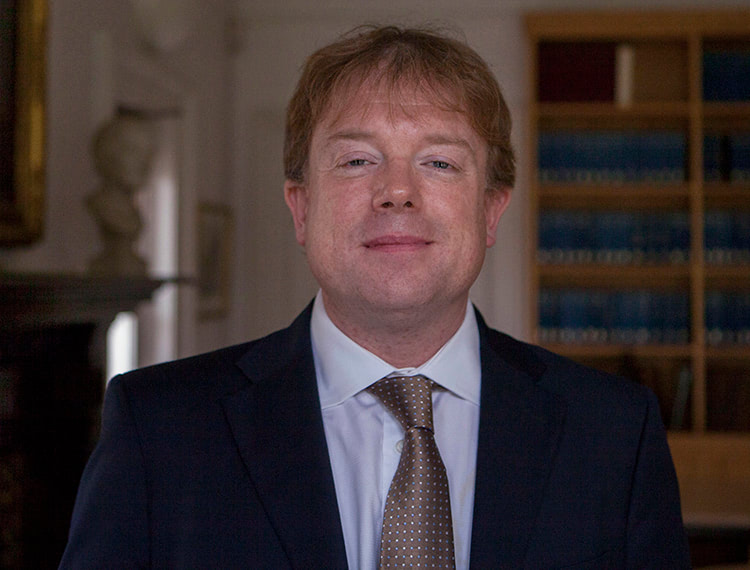‘You can’t say that!’ – New polling shows students want more controls on free expression

The Higher Education Policy Institute has polled 1,000 full-time undergraduates on free speech issues via YouthSight, a market research company specialising in students’ views. The questions were identical to those posed via the same polling company in 2016 (with two additions).
The new results, published as ‘You can’t say that!’ What students really think of free speech on campus (HEPI Policy Note 35, attached) by Nick Hillman, show students are significantly less supportive of free expression than they were.
Key findings
Free speech and discrimination
- 79% of students believe ‘Students that feel threatened should always have their demands for safety respected’ (up from 68% in 2016) while 4% disagree (down from 10% in 2016).
- 61% of students say ‘when in doubt’ their own university ‘should ensure all students are protected from discrimination rather than allow unlimited free speech’ (up from 37% in 2016).
- The proportion of students who believe ‘universities are becoming less tolerant of a wide range of viewpoints’ has risen to 38% (up from 24% in 2016), and this view is considerably more common among male students (51%) than female students (28%).
- The proportion of students who agree that ‘if you debate an issue like sexism or racism, you make it acceptable’ has doubled to 35% (from 17% in 2016).
Events
- Most students believe one or more political groups should be banned from speaking at higher education institutions, including the English Defence League (26%), UKIP (24%), the British National Party (19%), the Communist Party (12%) and the Conservative Party (11%) – when presented with a long list of political parties, just 13% say ‘none of the above’ should be banned from speaking (down from 27% in 2016).
- 64% of students think universities should ‘consult special interest groups (e.g. religious groups or gender societies) about on-campus events’ (up from 40% in 2016).
- When asked what rights students and staff should have to respond to an event they dislike, 39% of students say they should be able to ‘hold a protest outside’, 20% say they should be able to ‘stop the event from happening’ and 12% say they should be able to ‘disrupt the event’ (all up since 2016).
- The proportion of students who think ‘gender segregation should be allowed at official university events’ is 32% (up from 20% in 2016).
Students’ unions
- 86% of students support the No-Platform policy of the National Union of Students, (up from 76% in 2016) while just 5% say ‘the NUS should not limit free speech or discussion’.
- 62% of students support students’ unions refusing to sell tabloid newspapers on grounds of sexism (up from 38% in 2016) while only 10% disagree.
- 39% of students believe ‘students’ unions should ban all speakers that cause offence to some students’ (more than double the 16% figure in 2016).
Staffing and academic resources
- 77% of students believe there should be ‘mandatory training for all university staff’ on understanding other cultures (up from 55% in 2016).
- The proportion of students who think academics should be fired if they ‘teach material that heavily offends some students’ is 36% (over double the 15% in 2016).
- When asked about university libraries, one-third of students (34%) say ‘all resources should be included for the purpose of academic study, regardless of content’ (down from almost one-half of students – 47% – in 2016).
Trigger warnings, removing memorials and safe spaces
- 86% of students support trigger warnings (up from 68% in 2016).
- 76% of students think universities should always or sometimes ‘get rid of’ memorials of potentially controversial figures (up from 51% in 2016).
- 62% of students support safe-space policies (up from 48% in 2016).
Government
- In response to a new question, around one-half of students (48%) support the Government’s proposal to establish a ‘free speech champion’ for universities in England. Around one-quarter (23%) disagree and the rest are uncertain (29%).
The author of the report and Director of HEPI, Nick Hillman, said:
‘Six years ago, when we first polled students on freedom of expression, David Cameron was Prime Minister and the Brexit referendum was just around the corner. Back then, undergraduates had been born in the previous century whereas most of today’s undergraduates were born after the turn of the millennium – and they have had to contend with COVID, industrial action and a cost-of-living crisis. So we thought it was important to test opinion once more.
‘We have discovered a very clear pattern. In 2016, we found considerable ambivalence and confusion about free speech issues. Now, it is clear most students want greater restrictions to be imposed than have tended to be normal in the past. This may be primarily for reasons of compassion, with the objective of protecting other students, but it could also reflect a lack of resilience among a cohort that has faced unprecedented challenges.
‘A high proportion of today’s students have a different conception of academic freedom and free speech norms than earlier generations and also from many policymakers, regulators and commentators. Things have seemingly swung too far in one direction, with relatively few students recognising the unavoidable trade-offs involved with ever greater restrictions on legal free speech. So we must ask if the best response is more top-down regulation, more robust institutional management or more light-touch interventions aimed at inculcating a diverse campus culture – or a combination of all three.’
Minister for Higher and Further Education Michelle Donelan said:
“Free speech and academic freedom are values which our world-leading universities take pride, but which can no longer be taken for granted.
“This new HEPI report shows a shocking growth in support for censorship across a wide range of indicators. University leaders can no longer afford to stand aside, but must take active steps to combat these intolerant attitudes on campus, both promoting and protecting free speech. We cannot allow our young people – the future of this great country – to feel like their free speech is being stifled and that they have to bow to the majority opinions on campus.
“This report demonstrates only too clearly the need for our new Free Speech Bill which will ensure we remain the most academically free countries in the world – right where we belong.”
Recommendations
The report concludes that the higher education sector should do all it can to own the response to freedom of speech challenges by beefing up what already happens, including:
- reassessing formal procedures, such as existing codes of practice;
- ensuring consistent good practice, such as balancing controversial speakers with others;
- giving students improved information on academic norms, including in freshers’ weeks;
- liaising with student groups to help address experiences of marginalisation and vulnerability;
- supporting students’ unions and student societies to foster an open culture and debate;
- working collegially with other institutions to learn from what works;
- continuing co-operation with official authorities when public safety is at risk; and
- adopting a leadership culture that recognises the importance of free expression.
The report additionally argues for careful handling of external provocateurs: universities are places of learning, scholarship and research, so their role should not be expected to include putting their reputation on the line by providing a backdrop for provocateurs to play games.
Methodology
HEPI polled 1,019 full-time undergraduate students (44% male and 56% female) through YouthSight (owned by Savanta) between 13 and 19 May 2022. Quotas were set on gender, course year and university type to ensure a representative sample. Respondents received a £0.50p voucher credit. All the questions were posed exactly as in our 2016 survey on the same topic except for two additional questions (on the Government’s current plans to establish a free speech champion at the Office for Students and on past voting behaviour). The full results, including questions not referred to in the report and with various crossbreaks, are available from HEPI. The margin of error is +/-3%.











Responses